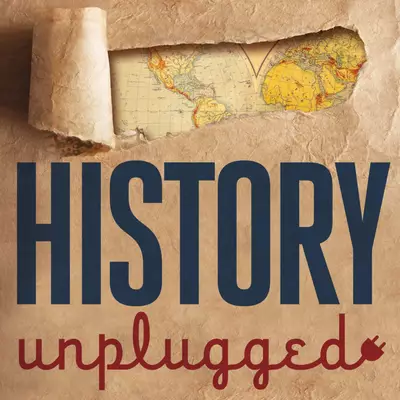Listen on Your Favorite App
Joe McCarthy, the Hydrogen Bomb, and Ten Fateful Months That Kicked Off the Cold War
September 28, 2023
00:00
40:34
Listen on Your Favorite App
There’s a good argument to be made that the entire trajectory of the Cold War was set off by ten fateful months of American and global history, between the first Soviet atom bomb test in the late summer of 1949 and the outbreak of the Korean War in June 1950. The following events then all occurred in rapid succession: the dawning of the Taiwan question, the rise of Senator Joe McCarthy, the birth of NATO, the hydrogen bomb, and the origins of the European Union.
To look at these fateful months is today’s guest, Nick Bunker, author of “In the Shadow of Fear.” At the time, Sir Winston Churchill described the United States as “this gigantic capitalist organization, with its vast and superabundant productive power – millions of people animated by the profit motive.” The dollar reigned supreme, and Harry S. Truman and his Democratic allies in Congress hoped to use the country’s economic might to build on Franklin D. Roosevelt’s achievements with a bold new program of liberal reforms.
However, in the autumn of 1949 and the first half of 1950, Truman and his party were overtaken by the unforeseen. While Mao Zedong’s army swept through China, in America the age of FDR gave way to the beginnings of a new conservatism. An aggressive Republican Party, desperate for power, seized on rifts among its opponents, and Truman’s programs went down to defeat. As he launched his first anti-communist campaign, the young Joe McCarthy ambushed Truman with a style of politics that polarized the country. Leaders and citizens were compelled to improvise as events spun out of control.
To look at these fateful months is today’s guest, Nick Bunker, author of “In the Shadow of Fear.” At the time, Sir Winston Churchill described the United States as “this gigantic capitalist organization, with its vast and superabundant productive power – millions of people animated by the profit motive.” The dollar reigned supreme, and Harry S. Truman and his Democratic allies in Congress hoped to use the country’s economic might to build on Franklin D. Roosevelt’s achievements with a bold new program of liberal reforms.
However, in the autumn of 1949 and the first half of 1950, Truman and his party were overtaken by the unforeseen. While Mao Zedong’s army swept through China, in America the age of FDR gave way to the beginnings of a new conservatism. An aggressive Republican Party, desperate for power, seized on rifts among its opponents, and Truman’s programs went down to defeat. As he launched his first anti-communist campaign, the young Joe McCarthy ambushed Truman with a style of politics that polarized the country. Leaders and citizens were compelled to improvise as events spun out of control.
See omnystudio.com/listener for privacy information.
More Episodes
See all episodes
Meet Your Host

Scott Rank is the host of the History Unplugged Podcast and a PhD in history who specialized in the Ottoman Empire and modern Turkey. Before going down the academic route he worked as a journalist in Istanbul. He has written 12 history books on topics ranging from lost Bronze Age civilizations to the Age of Discovery. Some of his books include The Age of Illumination: Science, Technology, and Reason in the Middle Ages and History’s 9 Most Insane Rulers.. Learn more about him by going to scottrankphd.com.
